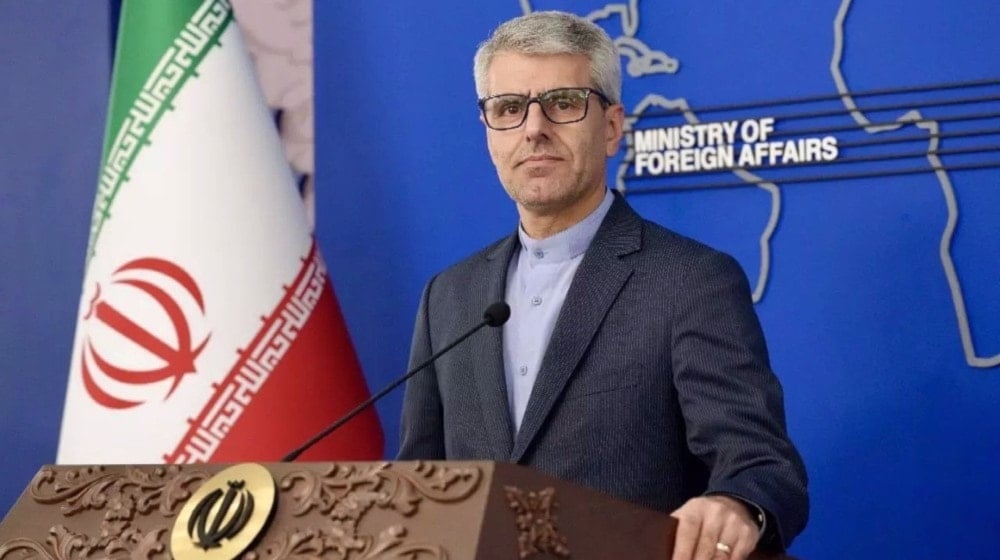Iran condemns Israeli crimes in West Bank, calls for accountability
Iran condemns Israeli occupation crimes in the West Bank amid escalating raids and settler attacks, calling for international accountability.
-

Iranian Foreign Ministry spokesman Esmaeil Baghaei, undated. (Press TV)
Iranian Foreign Ministry spokesperson Esmaeil Baghaei condemned the ongoing crimes committed by the Israeli occupation in the West Bank, calling for international accountability and legal action.
In a statement shared on the Foreign Ministry's official platform on X, Baghaei denounced the systematic attacks carried out by the Israeli occupation forces across Palestinian territories, including repeated raids on refugee camps in Nablus and Jenin, assassinations, arrests, and the destruction of Palestinian homes and property.
He stressed that these violations amount to crimes against humanity and urged the international community to assume its responsibilities in confronting them.
Baghaei emphasized the importance of documenting the violations, pursuing those responsible, and holding Zionist criminals accountable under international law.
West Bank faces large-scale raids, settler violence
The statement came against the backdrop of a major escalation in the West Bank. On 26 November, occupation forces raided Qabatiya near Jenin, killing 20-year-old Osama Kamil. The following day, a large-scale joint operation by the occupation army and the Shin Bet swept through Qabatiya, Qaffin, and Habla, involving flares, explosions, and mass troop deployments.
From 25 to 28 November, the IOF intensified raids in Ramallah, al-Khalil, Nablus, Jenin, Tubas, Qalqilya, and Tulkarm, including violent home invasions, arrests of children, and widespread property damage. In Tubas alone, around 60 Palestinians were detained in a single day, with homes converted into military posts and several residents beaten.
Settler attacks under army protection also escalated. In Yatta (al-Khalil), three Palestinians were assaulted, while other attacks were reported in villages such as Masafer Yatta, Abu Falah, and Beit Dajan. These included arson, land seizures, and destruction of agricultural property, part of what observers describe as a policy of forced displacement.
Earlier in November, UN and Palestinian sources cited over 2,300 combined settler and army attacks in October, marking one of the most violent periods in recent West Bank history.

 2 Min Read
2 Min Read








